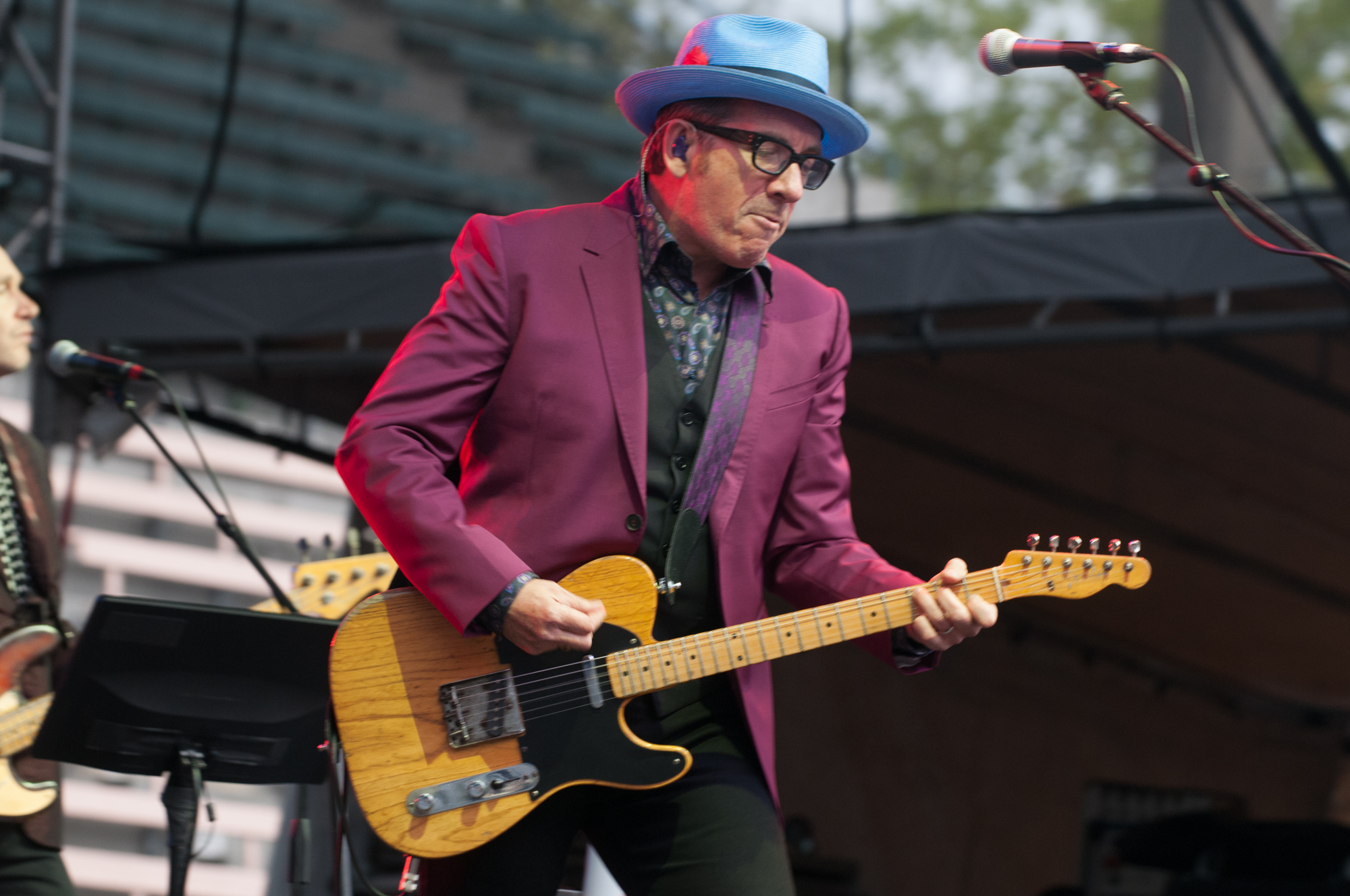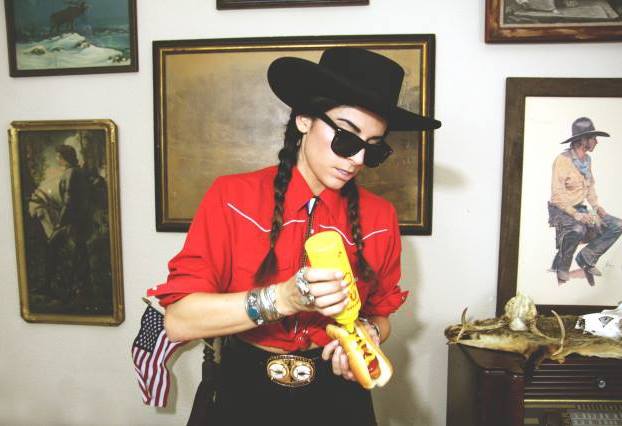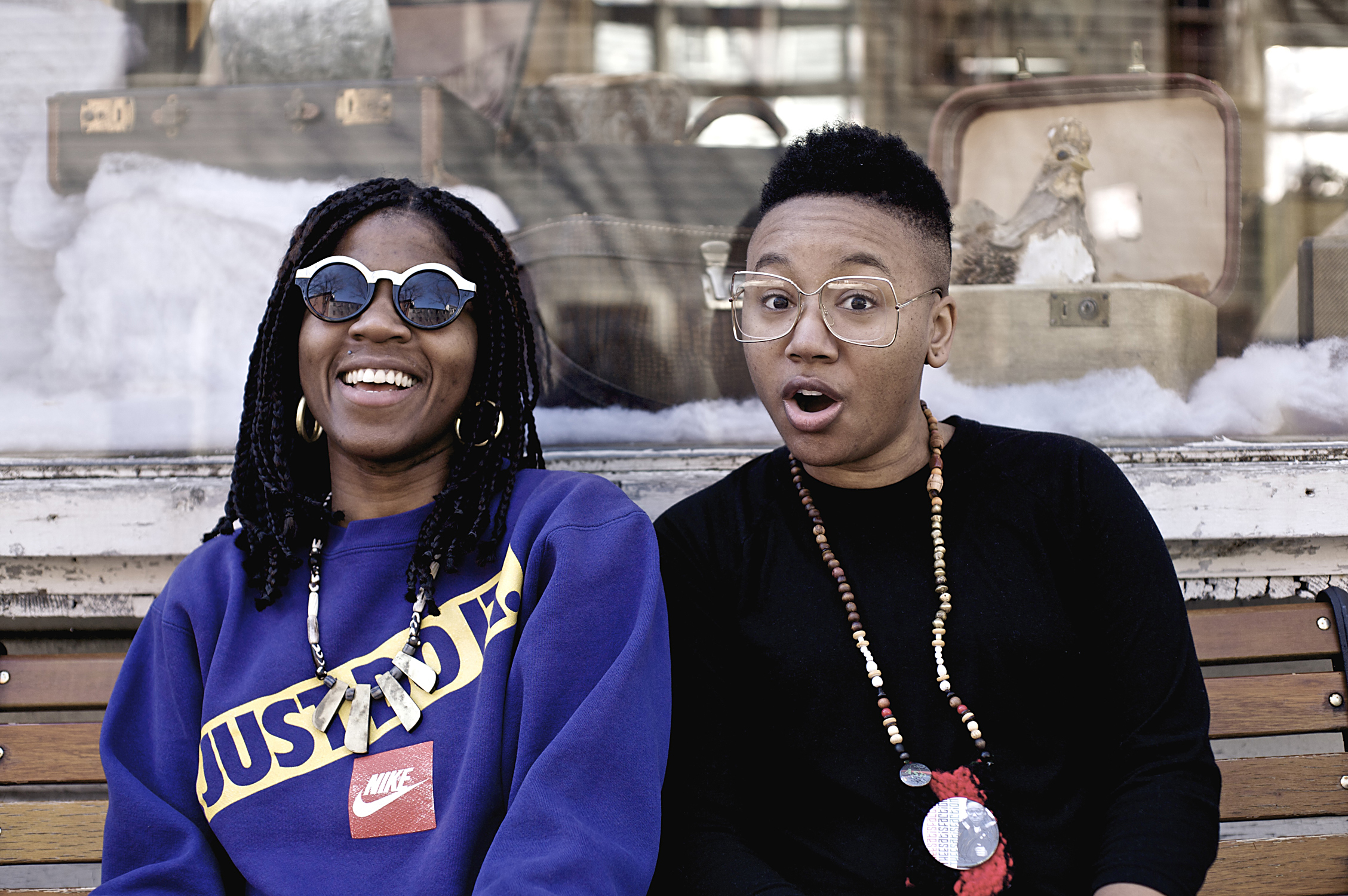Red feather in an electric blue fedora, bright magenta blazer: Details of style are not lost on Elvis Costello, who headlined Bumbershoot’s mainstage just a few minutes early of his 6:15 p.m. set time on Saturday. Known for his trademark black-rimmed glasses and mod, tailored suits, the veteran songwriter, who turned 60 just days before, takes a similar approach to his songwriting, a carefully-worded lyric-lover’s diamond mine many fans in attendance clearly knew by heart as they sang along.
What was noteworthy was the evening’s set list. Perhaps that’s just the weight of Costello’s five decade-spanning catalog—songs of complicated romance and socio-political anthems in equal parts—but if there was an underlying theme, it was the world’s fractured, imbalanced state, from first song, “Brilliant Mistake,” with its mention of some disillusioned “King of America” and the “boulevard of broken dreams,” to “Bedlam,” about the Bush administration, to one of Costello’s biggest hits, ”Watching the Detectives,” with its message of ennui and apathy, re: “She’s filing her nails while they’re dragging the lake.”
Costello’s use of double-entendre is well-documented, so there’s always the question of what really inspired the song. Still, in light of particularly tense race relations at the moment, I couldn’t help but cringe waiting for the lyric “white nigger” which was delivered uncensored, along with the song’s references to Palestine and Johannesburg in “Oliver’s Army.” The tone was particularly raw, especially as Costello and band reeled through the number—supposedly about boy soldiers in Northern Ireland—without flinching.
The unerring attitude was bolstered by two-thirds of Costello’s original band the Attractions—Steve Nieve, keys, Pete Thomas, drums—who have been playing these songs for years and who the frontman introduced twice, at the top of the set and towards the end (Davey Faragher rounded out the ensemble on bass). Every man was on his game, and I lost count of how many guitars Costello played. He was really feeling it, it seemed, going so far as to usurp the iconic key solo on “Clubland” for his own distorted, grinding guitar interlude.
Then there was “(What’s So Funny ‘Bout) Peace, Love, and Understanding,” one of Costello’s corniest songs, but within the context had its role to play, especially since it was sandwiched between “Radio Radio” (“They say you better listen to the voice of reason/But they don’t give you any choice ‘cause they think that it’s treason”) and “Pump It Up.” To me, it was a carefully selected trio that spoke volumes about propaganda, brotherhood, and solidarity (respectively).
That’s just my read, of course. Costello gave little else away, save for some banter about the weather, and breezed through the set letting the music do the talking. Yet for all the attention to detail—virtuosic guitar skills, unparalleled band, that voice—you have to listen between the lyrics. For such a curator of aesthetics, there’s a lot going on there, too.








